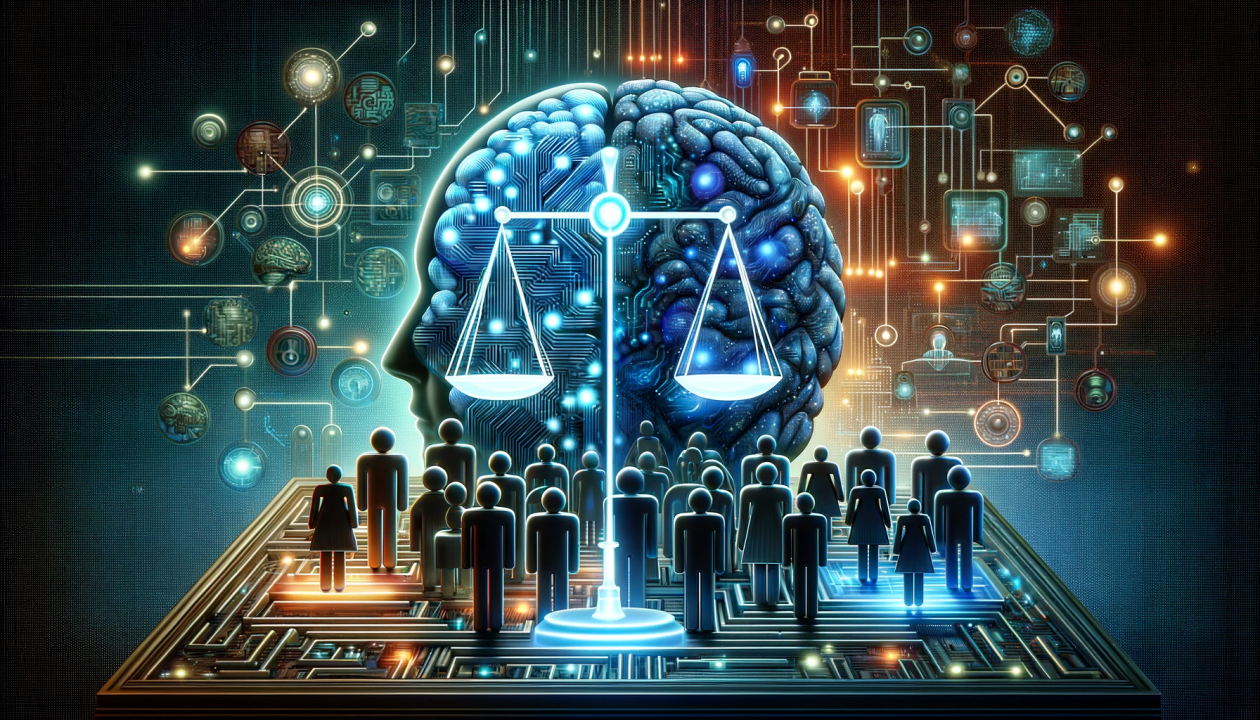The digital landscape is evolving at an unprecedented pace, with Web 3 poised to revolutionize how we interact with the internet. This decentralized ecosystem promises greater user ownership, transparency, and security. Alongside Web 3, artificial intelligence (AI) is making leaps in capabilities, offering enhanced personalization and automation. However, the convergence of Web 3 and AI raises critical ethical concerns that cannot be ignored. How do we ensure that AI—a tool with immense power—is used ethically in the decentralized age? Let’s explore the ethical challenges and opportunities AI brings to Web 3.
What is Web 3 and How Does AI Fit In?
Understanding Web 3
Web 3 represents the next phase of the internet, characterized by decentralization, blockchain technology, and user-centric platforms. Unlike the traditional Web 2 model, where tech giants control data and resources, Web 3 places power back in the hands of users. It’s a paradigm shift towards greater ownership and transparency.
AI’s Role in Web 3 Ecosystems
AI is seamlessly integrating into Web 3 environments, enabling:
- Personalization: AI helps tailor decentralized platforms to individual user preferences, enhancing user experiences.
- Smart Contracts: AI-driven algorithms optimize smart contract execution, making them more efficient and adaptive.
- Data Insights: In decentralized networks, AI provides actionable insights by analyzing vast amounts of distributed data.
As promising as these integrations are, they come with a host of ethical concerns that demand attention.
Ethical Challenges of AI in Web 3
Bias and Fairness
AI algorithms are only as unbiased as the data they are trained on. In decentralized applications, biased algorithms can perpetuate discrimination:
- Case Studies: Examples of AI-driven platforms showing racial or gender bias highlight the risks of unethical design.
- Addressing Bias: Decentralized governance models could offer solutions by enabling communities to audit and refine AI systems.
Data Privacy and Ownership
One of Web 3’s core promises is improved data privacy. However, AI’s need for extensive data to learn and improve creates ethical dilemmas:
- Conflicts: How do we ensure that AI respects data sovereignty while functioning effectively?
- Solutions: Innovations like zero-knowledge proofs could allow AI to learn from data without exposing it, preserving privacy.
Transparency and Accountability
Decentralized systems make it harder to determine who is accountable for unethical AI behavior.
- Challenges: Auditing AI decisions in a decentralized environment is complex, and assigning accountability is even more difficult.
- Potential Fixes: Blockchain’s immutability could provide a transparent trail of AI decisions, enhancing accountability.
Trust and Autonomy in AI-Driven Decentralized Systems
Building Trust with Users
Trust is foundational for AI adoption in Web 3. Users need confidence that AI operates transparently and ethically:
- Explainable AI (XAI): By making AI’s decision-making processes understandable, we can foster user trust.
- Decentralized AI Frameworks: These frameworks distribute decision-making power, reducing risks of centralized manipulation.
Respecting User Autonomy
AI automation must not come at the expense of human control:
- Ethical Dilemmas: Autonomous systems can act contrary to user intent. For instance, AI in decentralized finance (DeFi) might execute trades that users regret.
- Human Oversight: Hybrid models where users retain ultimate control over AI actions can balance automation with autonomy.
Regulation and Governance in the Web 3 Era
The Need for Ethical AI Standards
The decentralized nature of Web 3 complicates regulatory enforcement. However, global efforts are underway to establish ethical AI standards:
- Existing Frameworks: Organizations like the EU and UNESCO have proposed ethical guidelines for AI development.
- Decentralized Governance: Web 3 communities can adopt these frameworks through collective decision-making processes.
Community-Driven Regulation
Decentralized Autonomous Organizations (DAOs) offer a unique way to regulate AI ethics:
- Consensus Building: DAOs enable community members to vote on ethical guidelines for AI.
- Challenges: Achieving consensus among diverse stakeholders can be time-consuming and complex.
Leveraging Blockchain for Ethical AI
AI Accountability Through Blockchain
Blockchain’s immutability provides a way to ensure AI accountability:
- Decision Logs: AI decision-making processes can be recorded on the blockchain, offering a transparent audit trail.
- Smart Contracts: Ethical guidelines can be embedded into smart contracts to enforce compliance automatically.
Decentralized Identity (DID)
DIDs ensure that users retain control over their identities in Web 3:
- Data Sovereignty: AI applications can operate without accessing raw user data, preserving privacy.
- Real-World Examples: Projects like Sovrin demonstrate how DIDs empower users while supporting ethical AI use.
Opportunities for Ethical AI Development in Web 3
Decentralized Innovation
Web 3 fosters innovation in ethical AI development:
- Open-Source Projects: Decentralized platforms encourage collaboration, enabling transparent AI development.
- Case Studies: Projects like Ocean Protocol illustrate how decentralized AI systems can operate ethically and efficiently.
Collaboration Across Communities
Ethical AI development requires input from diverse stakeholders:
- Multidisciplinary Teams: Technologists, ethicists, and policymakers must work together to address ethical challenges.
- Global Efforts: Cross-border collaborations can create universally accepted ethical standards.
The Future of AI Ethics in the Web 3 Era
Predicted Trends
The intersection of AI and Web 3 will shape the future of technology:
- Increased Integration: AI will become more deeply embedded in blockchain systems, enhancing efficiency and functionality.
- Enhanced User Control: Tools for user empowerment, like self-sovereign identities, will become mainstream.
The Role of Society
Ultimately, ethical AI in Web 3 requires societal vigilance:
- Education and Awareness: Users must understand the implications of AI and advocate for ethical practices.
- Developer Responsibility: Developers must prioritize ethics alongside innovation, ensuring AI benefits humanity.
Conclusion
The convergence of AI and Web 3 presents a unique opportunity to build a digital ecosystem that is ethical, transparent, and user-centric. By addressing challenges like bias, accountability, and privacy, we can harness the power of AI while staying true to Web 3’s principles of decentralization and transparency. The future of AI ethics lies in our collective ability to shape technologies that prioritize humanity over profit. What role will you play in ensuring AI serves the greater good in the age of Web 3?







